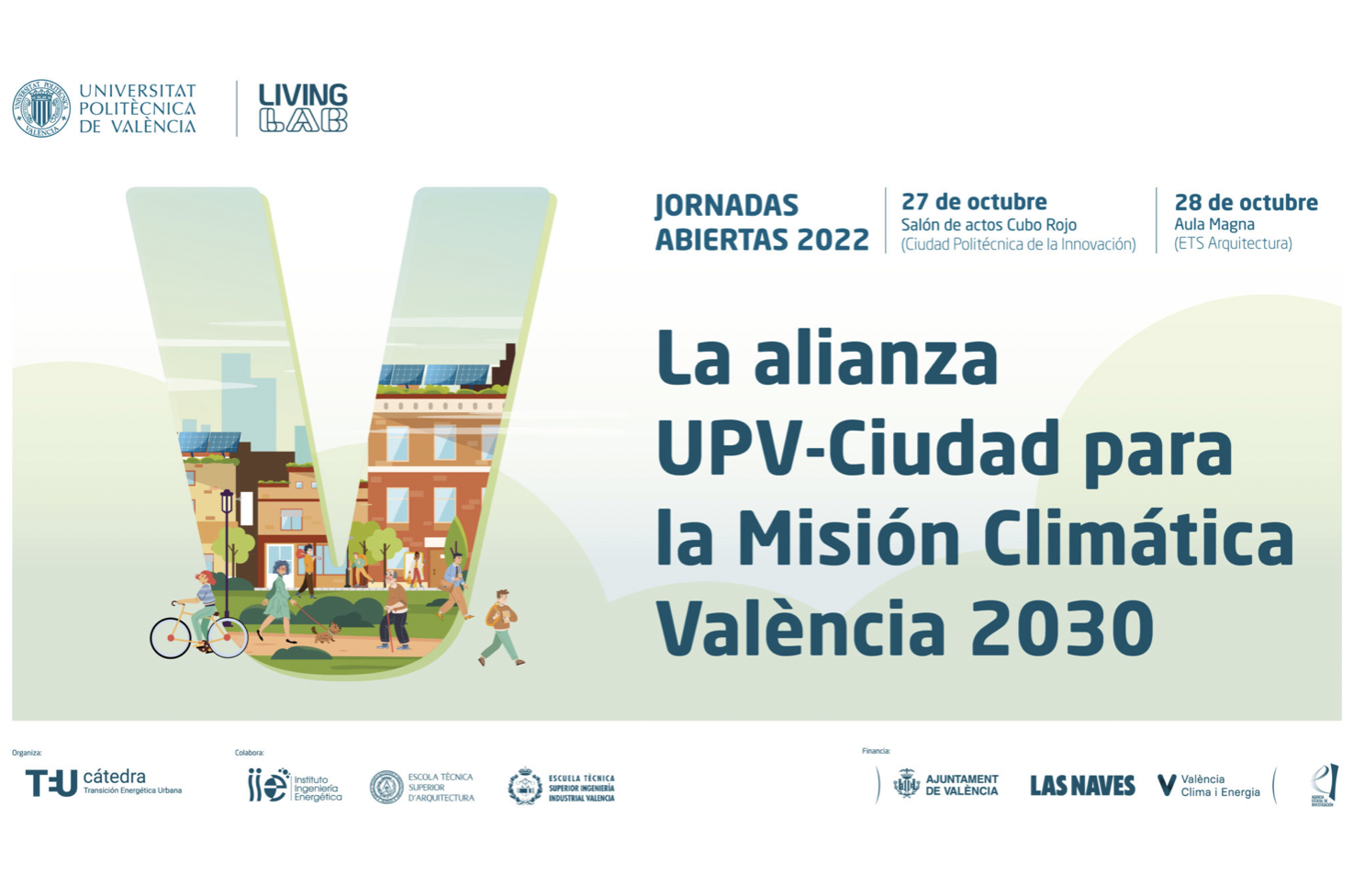The conference “The UPV-city alliance for the Climate Mission València 2030”, to be held at the Universitat Politècnica de València on October 27 and 28, will demonstrate the benefits of the alliance of universities and cities to provide an effective response to the climate emergency.
The meeting is co-organized by the Chair of Urban Energy Transition and the Vice-Rector’s Office for Sustainable Campus Development. The conference will be organized by the UPV in the framework of the Climate Mission of Valencia and will allow knowing initiatives in which work is being done in various European cities. Registration for the conference is free and is available, along with the program, on the Chair’s website.
Valencia is one of the one hundred smart and climate-neutral cities
València is one of the seven Spanish cities selected by the European Union to participate in its mission “One Hundred Smart and Climate Neutral Cities by 2030” together with Barcelona, Madrid, Seville, Valladolid, Vitoria-Gasteiz and Zaragoza. Its objective is for these European cities to achieve a balance between their greenhouse gas emissions and those absorbed by the environment by 2030, developing initiatives that can be adopted in other urban areas of the EU.
Carla Montagud Montalvá, director of the Chair of Energy and Urban Transition of the UPV, encourages research, technical and managerial staff of public and private entities, as well as students, to participate in the conference, as “it will be an event of impact where the views and initiatives of different Spanish and European universities in the process of decarbonization of cities, which is a great challenge for society”.
Partnerships for urban transition
The conference has two distinct spaces. On Thursday, October 27, the meeting will take place in the auditorium of the Red Cube of the Polytechnic City of Innovation and will focus on university-city partnerships for the urban energy transition.
The first intervention will analyze the roadmap of European cities towards climate neutrality; then, research groups from five Spanish universities will discuss initiatives for the energy transition of their cities. Technical work developed by the Universitat Politècnica de València for the transition to climate neutrality in Valencia will also be presented, such as positive energy districts, solar resource mapping in cities, modelling of energy communities and innovation in the fight against energy poverty.
The day will conclude with the presentation of the proposal for the energy transition of the Campanar neighbourhood of the winning team of the Smart & Sustainable Valencia 2030 program, the result of collaboration between the Royal Institute of Technology in Stockholm, the Chair of Urban Energy Transition of the UPV and the City Council of Valencia.
València climate neutral by 2030
On Friday, October 28, the conference will take place in the aula magna of the School of Architecture of the UPV. The central theme will be the university-city alliances for the València 2030 Climate Mission. During the meeting, the most recent advances in the UPV-València and UV-València binomials for this mission will be presented.
The first speakers, experts from the Dutch TU Delft University and the Swedish KTH University, will analyze the decarbonization of university campuses and strategic university-city partnerships in Europe.
Then, those responsible for the sustainability strategies of the Universitat Politècnica de València and the Universitat de València will reflect on the policies of both universities to achieve sustainability and decarbonization of teaching, research, mobility and transfer.
Finally, the actions deployed by the UPV and the UV in the respective university-city binomials will be presented. On the UPV side, the progress made in the UPV Living Lab since its launch in October last year.
According to European Union sources, cities occupy 3 % of the earth’s surface but produce more than 70 % of greenhouse gas emissions. In Europe, it is estimated that by 2050 about 85% of the population will be living in urban areas. For this reason, the current climate emergency must be addressed in cities, and it is up to the citizens themselves to do so.
